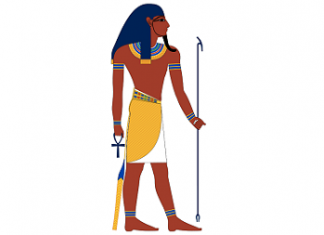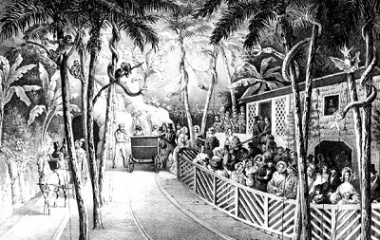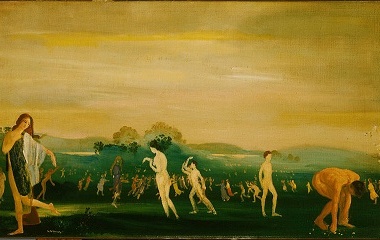The majority of religions believe in an afterlife: an idyllic paradise where the woes of Earthly living are replaced by lush green fields, flowing streams of water and wine and blissful peace.
What Are the Elysian Fields?
In Greek mythology, the Elysian Fields (also spelt Elysium) are the paradise where gods and nobles spend eternity in the afterlife. The inhabitants are believed to live in perfect happiness, similar to the Christian Garden of Eden. In the luscious meadows, the inhabitants make music, sing and even play sport.
Hades and Persephone resided in there and held their royal court.
Location
Homer believed the location of the paradise to be in the west, at the end of the Earth. He postulated it as on the shores of the Oceanus, a river that flowed around the Earth. Hesiod referred to the Elysian Fields as the Isle of the Blessed and considered them to be located in the same area.
According to some sources, a second Elysian Fields may have existed. This underworld was separated from Hades by the Lethe River. The paradise was promised to the initiates of the Mystery cults of Demeter, Persephone, and Hekate, among others. They were taught that if they lived virtuous lives, they would be elevated to the status of a god upon their death and become immortal. With their newfound immortality, they would be able to gain access to their promised utopia and live in eternal bliss. On occasion, the two concepts of the Elysian Fields were combined and, if a soul passed through the netherworld Elysian three times, it would then progress on to the Isle of the Blessed, or ultimate paradise.
When later Greek writers assessed the legend of the Elysian Fields, they postulated the location to be at the mouth of the River Danube, and the Isle of the Blessed potentially in the Atlantic Ocean.
Sources
Homer describes the Elysian Fields as a paradise in his works, The Odyssey. Hesiod, in his poem Works and Days, similarly makes mention of the Isle of the Blessed. The Greek poet Pindar believed the paradise to be contained on a single island. Virgil describes the fields as being shady, with temperate weather, and possessing its own sun and stars.
Dante supposed the Elysian Fields were the uppermost level of hell, where non-Christians were sent, instead of heaven. In later narratives on the paradise, such as Friedrich Schiller’s Ode to Joy, Schiller views the fields as filled with song, joy and games. In the 16th century, an outlying garden of the Tuileries Palace in France was given the name the Champs-Élysées. The name translates as the Elysian Fields and was later retained by the iconic avenue in Paris. Further reference to the idyllic afterlife was made by playwright and poet William Shakespeare. He used the term in his play Twelfth Night, in reference to a general paradise.
Who Could Enter?
Initially only gods, and those favored by them, could enter the paradise, but in later writings, it appeared as though a broader populace was able to gain access. Those who lived a virtuous life could also enjoy the eternal happiness offered by the heavenly realm.
The euphoric domain was said to be ruled by Cronus, according to Pindar and Hesiod, while Homer believed Rhadamanthus was the ruler. When mortals entered Hades, they would be sent to the Elysian Fields if they were virtuous, to the Asphodel meadows if they had been both good and evil, and to Tartarus if they were downright evil. The souls heading to the Elysian Fields would first drink from the Lethe River and forget their suffering on Earth.
Modern References
Many Neopagans believe Elysium to be a multi-layered paradise, with lush green fields and bubbling brooks of water and wine. For the particularly virtuous Neopagans, they may gain access to the Golden City and enjoy a blissful eternity. Further reference was made to Elysium in 1972, with the naming of Elysium Mons, a volcano in the volcanic province, Elysium, on Mars. In 2013, a science fiction film was released called Elysium. The plot recounts the story of extremely wealthy citizens who reside in a manmade paradise called Elysium.
Perhaps we have a paradise to look forward to, once we leave our mortal discord behind. A River of Lethe would certainly be an essential element in the journey to idyllic bliss though, as without its soothing sweep to empty our frenetic minds, we would never be able to relax in paradise!










